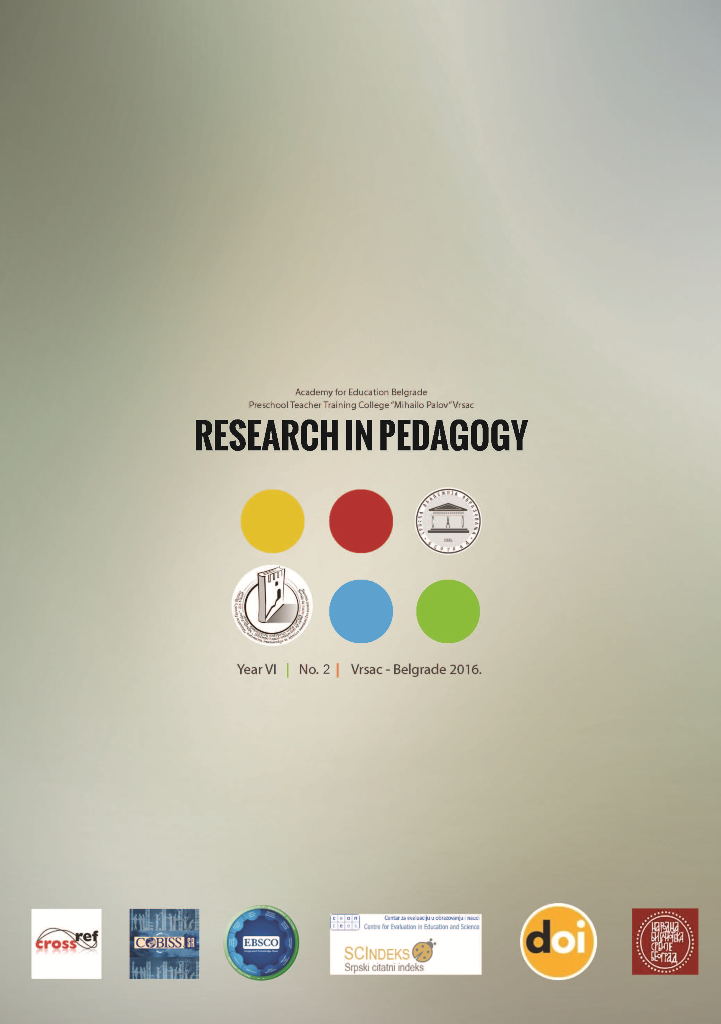SOCIAL FUNCTIONING OF STUDENTS WITH INTERNALIZING
BEHAVIORAL PROBLEMS
SOCIAL FUNCTIONING OF STUDENTS WITH INTERNALIZING
BEHAVIORAL PROBLEMS
Author(s): Maša Đurišić, Jelena GajićSubject(s): Education
Published by: Visoka škola strukovnih studija za vaspitače "Mihailo Palov"
Keywords: school; social functioning; social competence; antisocial behavior; internalizing behavioral problems;
Summary/Abstract: The school is a period of intensive development of the child, the child's socialization, creation and formation of attitudes, opinions and behavior patterns and others. During this period, the child comes in part from the protective environment of their parents and enters the world of social relations and interactions. Through interactions with peers a child achieves success and achievement, develops a sense of competence, self-confidence and autonomy. After starting school may be some problems in forming relationships with others arise, which can lead to problems in social and emotional development of the child. For this reason it is very important to pay special attention to the development and improvement of social functioning. Internalizing behavioral problems have a significant negative impact on many areas of development and competences, which can lead to peer rejection, social isolation and poor school achievement. Children who have frequent internalizing behavioral problems often have a low sociometric status, which can significantly lead to future adaptive difficulties and in adulthood. This paper presents the results of a research on social functioning of students with internalizing behavioral problems (N = 111). We used the Scale of social behavior at school (School Social Behavior Scale-SSBS-2). Data were collected from seven elementary schools in Belgrade. The most important results of the study are as follows: 45.05% of students with internalizing behavioral problems have a risk level of social competence; risk level of relations with peers was found in 42.34% of the students; 50.45% of the students exhibit antisocial behavior; 53.36% of students show both the deficit of social competence and antisocial behavior. Identifying the level of social functioning children with internalizing behavioral problems in behavior is one of the basic prerequisites for the successful implementation of prevention and promotion of behavioral problems students and programs for enhancing social functioning in educational institutions.
Journal: Research in Pedagogy
- Issue Year: 6/2016
- Issue No: 2
- Page Range: 32-42
- Page Count: 11
- Language: English

